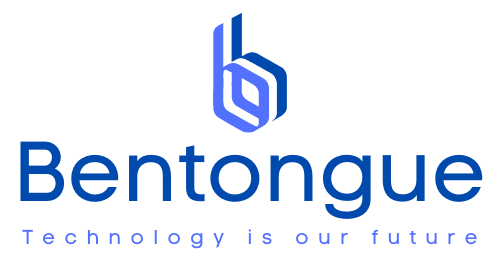In today’s rapidly evolving business landscape, digital marketing has become an indispensable tool for online business success. With over three billion internet users worldwide, the potential reach for businesses is immense. This article explores the essential digital marketing strategies that can help your online business thrive in an increasingly competitive marketplace, examining both foundational elements and implementation techniques that drive measurable results.
Fundamentals of Digital Marketing for E-commerce
Digital marketing represents a significant shift from traditional marketing approaches, leveraging digital technologies like the Internet, mobile platforms, and interactive advertising displays. What makes this approach particularly attractive for businesses of all sizes is its cost-effectiveness compared to conventional marketing channels. Resources like https://www.emprendeweb.es/ provide valuable guides and tutorials that help entrepreneurs navigate the complex world of digital marketing, covering everything from WordPress integration to SEO optimization techniques.
The digital marketing landscape continues to evolve alongside the web itself. From the static pages of Web 1.0 to the interactive Web 2.0, and now moving toward the intelligent Web 3.0 enhanced by AI technologies, marketing strategies must adapt accordingly. This evolution reflects how businesses need to stay current with technological trends to remain competitive in the online marketplace.
Key components of a robust digital marketing framework
A comprehensive digital marketing framework encompasses several interconnected elements. Search Engine Optimization (SEO) forms the backbone of visibility, helping businesses appear prominently in Google search results when potential customers seek relevant products or services. Content strategy works hand-in-hand with SEO, providing valuable information that establishes authority and builds trust with your audience.
Social media marketing through platforms like Facebook enables direct engagement with consumers, fostering community and brand loyalty. Many entrepreneurs find value in tutorials for customizing Facebook Fan Pages to create distinctive brand experiences. Website design represents another crucial component, as your digital storefront must be both aesthetically pleasing and functionally sound to convert visitors into customers.
Measuring digital marketing performance metrics
The effectiveness of digital marketing efforts can be quantified through various performance metrics. Brand awareness measurements track how recognizable your business becomes over time. Consumer engagement metrics reveal how deeply audiences interact with your content across platforms. Conversion rates demonstrate how successfully your marketing funnel guides prospects toward becoming customers.
Analytics tools provide insights into website traffic patterns, user behavior, and campaign performance. These data points allow marketers to make informed decisions about resource allocation and strategy refinement. Regular analysis of these metrics ensures marketing efforts remain aligned with business objectives and adapt to changing consumer preferences.

Effective implementation techniques for online success
Implementing digital marketing strategies requires thoughtful planning and execution. Web project management skills become essential when coordinating multiple marketing initiatives simultaneously. Many successful online businesses integrate various digital tools into a cohesive ecosystem, such as incorporating Google Maps functionality into WordPress sites to enhance local search visibility.
Netlinking platforms help build authority through strategic backlink acquisition, while comprehensive SEO agencies provide specialized expertise for businesses seeking professional assistance. The combination of technical knowledge and marketing acumen creates powerful opportunities for online business growth.
Crafting tailored digital strategies for specific market segments
Different audience segments respond to distinct marketing approaches. Younger generations may engage more readily with innovative social media campaigns, while middle-aged consumers might value in-depth content that addresses specific needs. Older generations increasingly participate in digital spaces, though they may prefer different platforms or communication styles.
Market segmentation allows businesses to customize their messaging and channel selection based on demographic, psychographic, and behavioral characteristics. For instance, entrepreneurs targeting specific regions might benefit from localized SEO strategies, such as those focused on the Basque Country market. Similarly, businesses can cater to privacy-conscious consumers by addressing concerns through solutions like disposable email addresses for 2025.
Integration of multi-channel approaches for maximum impact
The most successful digital marketing strategies embrace multi-channel approaches that create consistent brand experiences across touchpoints. This integration might include coordinating social media content with email marketing campaigns, ensuring website design complements online advertising visuals, and maintaining consistent messaging across all platforms.
Some businesses find value in specialized offerings like one-page website designs, which provide a streamlined digital presence at accessible price points around 450€. Others invest in comprehensive digital strategies that encompass content creation, social media management, SEO optimization, and paid advertising campaigns. The key lies in creating synergy between channels rather than treating each as an isolated effort.
As digital platforms continue to integrate into marketing plans, businesses of all sizes must embrace comprehensive strategies that enhance brand awareness, foster loyalty, and increase consumer engagement. By understanding and implementing these digital marketing fundamentals, online businesses position themselves for sustainable growth in an increasingly connected marketplace.







